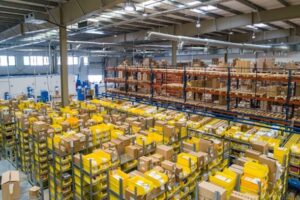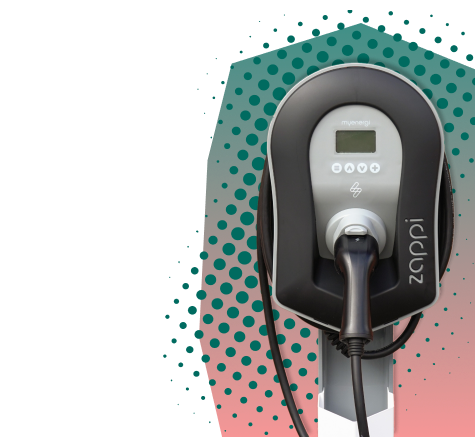According to government statistics, almost a fifth of greenhouse gases come from businesses. To put this into perspective, just 100 companies in 2017 were responsible for 71% of global emissions. This signifies the responsibility held by businesses around the world to tackle the climate change crisis.
On the flip side, people increasingly want to work for companies that instil sustainability at their core. Being better to the planet helps you hire better people. A recent study concluded that millennials are more likely to accept a smaller salary for a company that’s environmentally responsible, and more than 70% would choose a company with a strong environmental agenda.
The time to make the change and go green is now.
The Benefits Of Being More Sustainable
Changing public opinion and the government’s pledge to reduce all greenhouse gas emissions to zero by 2050 is making sustainability no longer a matter of preference. But the benefits aren’t just ethical; a recent survey by Barclays found that 75% of UK businesses are profiting from going green.
Investing in sustainable measures not only enhances a business’ brand image but increases their competitive advantage too. The Natural Marketing Institute found that 58% of consumers are more likely to buy a product/service from a business that pays attention to the impact they are having on the environment.
“Being sustainable is becoming a fundamental element of commercial success and many start-ups are building their businesses around this principle. Equally, consumers are becoming more conscious about their decisions and the impact they’re having”, Shannon Diett, VP Marketing at DHL Express UK
How to Green Your Business?
It doesn’t have to be expensive or groundbreaking, but it is a worthwhile investment. Small measures to use energy and resources more efficiently and mitigate existing waste streams can make a huge difference.
- Break the convenience addiction!
Daily coffee runs and eating out for lunch are employee habits that subtly produce tonnes of waste. By reducing behaviours that revolve around single-use products, your business can effectively reduce its environmental footprint.
Going beyond the typical recycling approach, try providing a coffee machine for communal kitchens, encourage employees to bring last night’s leftovers for lunch, compost food waste and use bulk containers for condiments rather than single-use throwaway servings.
- Make your procurement process green
There’s no point advocating being green if it’s not mirrored down the supply chain. Reviewing your procurement policies to make sustainable choices can have a domino effect on others following suit. Sourcing materials and goods locally, eliminating toxic materials, designing products to be repairable and made from renewable waste are just a few ways to ensure your business is shifting towards being more circular.
Consequently, collaborating with like-minded organizations and communities is another way to maximise how green you are. By partnering with groups working alongside local businesses and governments about environmental concerns, your business can simultaneously gain better insights into where community resources are being wasted, and have a better chance of speaking directly to the concerns of your customers.
- Introduce hybrid working
The pandemic has proven challenging for many, forcing a lot of businesses to rethink how they operate. And with technology constantly progressing, it has made flexible working arrangements the new norm.
The pandemic sped more business’ opinions on this and as we enter the next stage many are offering employees the ability to continue working from home 2 to 3 days a week. Not only does it deliver huge environmental benefits, such as reducing commuting emissions, saving on energy from computers and kettles used in the office, and cutting rental costs due to requiring a smaller office space, flexible working continues to climb the list of perks top talent require.
Uplight, Arcadia Power and Octopus Energy are just a few examples who are adopting this new way of working.

- Become a ‘B Corp’
If you’re really serious about changing for the better, why not get recognized for it? ‘B Corps’ are businesses that are voluntarily certified every two years for their social and environmental performance. It provides a framework to help balance the need to make a profit with the needs of the planet, as well as offering peer-to-peer advice via a network of like-minded businesses, sharing their advice and experiences in going green.
Who Is Paving The Way For Others To Follow?
It wouldn’t be fair to not share a few of the globally recognized brands making headlines for their momentous sustainability efforts.
- Patagonia, an outdoor clothing and apparel manufacturer, prides itself on producing high-quality, durable attire. By continuing to deliver long-lasting products from the best available materials, enabling repair, repurposing, and recycling across all apparel, Patagonia maintains its position as a leader within its industry. The brand also gives 1% of their earnings to environmental organizations, totalling $89 million since 1985.
- The Swedish homeware manufacturer IKEA is setting a great example. After converting their lighting range to energy-efficient LEDs, and phased out single-use plastics across all their stores, IKEA is now striving towards 100% renewable energy across its operations and with their direct suppliers. By 2030, they hope to only use renewable and recycled materials to reduce the total IKEA climate footprint by an average of 70% per product.

- The tech giant Intel’s RISE strategy (responsible, inclusive, sustainable, and enabled) can serve as a roadmap for businesses to follow suit. Recycling 75% of its total waste and pledging to increase their usage of green power to 100% by 2030 have led to reduced costs and improved brand perception.
There are many routes to sustainability. Every business has their part to play, whatever their size. By carrying the responsibility of our carbon footprints and taking the steps to shrink them down, we can help slow the effects of climate change. Our team not only know how to eco your office but are specialists in finding top talent for your GreenTech organization. If you are looking to scale, get in touch!












